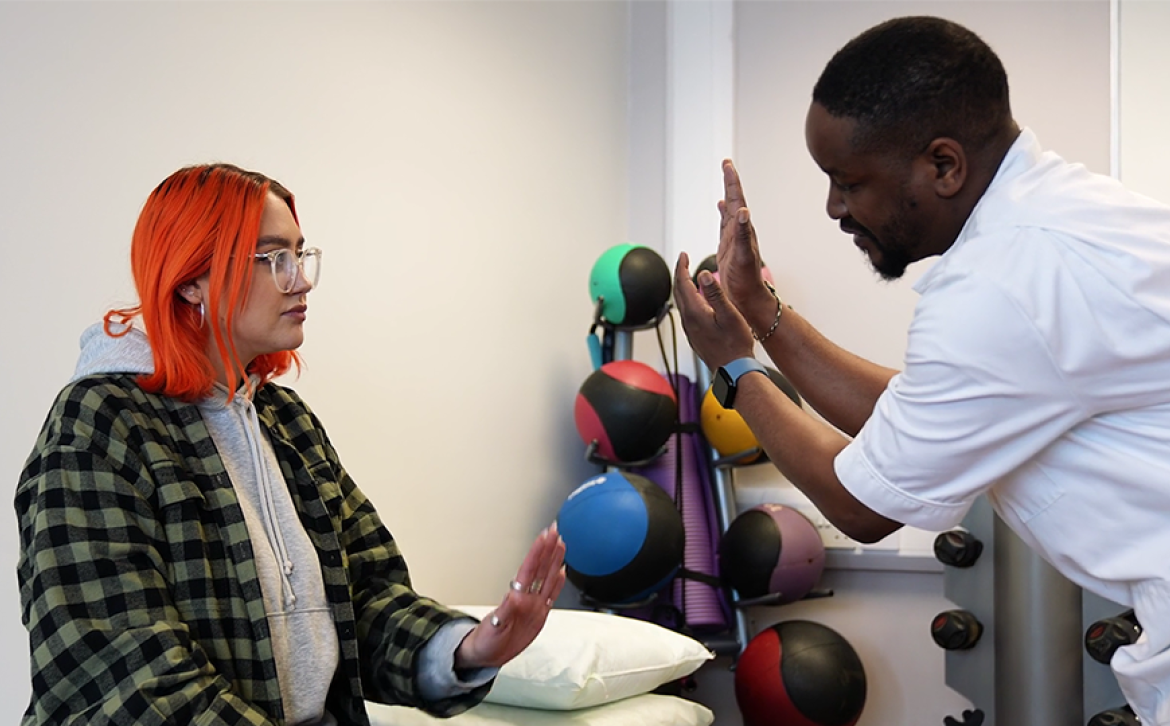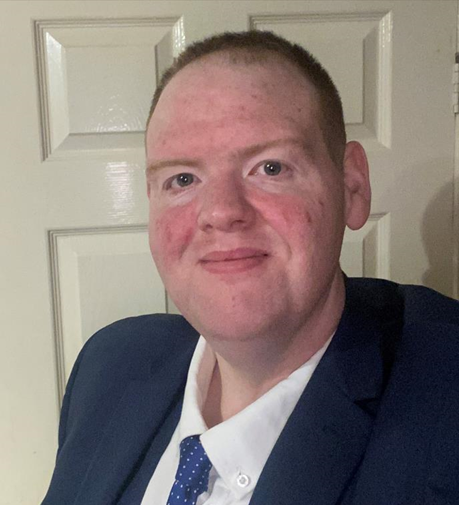Studying Occupational Therapy at Salford
So you’ve applied to study Occupational Therapy, we've made you an offer, but you’re still deciding or have further questions?
We want to make sure you have all the information you need as you get ready to study at Salford. We hope the information below helps you in your decision making. If you have any further questions, simply get in touch with us here.
Why should you study Occupational Therapy at the University of Salford?
The course is approved by the Health and Care Professions Council (HCPC) and the Royal College of Occupational Therapists (RCOT).
You will benefit from our strong links with service users, clinical experts and industry partners, meaning we have an excellent reputation for training occupational therapists who are able to meet the demands of current clinical practice
We have authentic facilities including a state-of-the-art simulation suite, and also plentiful study areas and IT resources

Our facilities
Our purpose-built rehabilitation flat provides the opportunity to learn and practice occupational therapy skills within a secure environment.
The flat has a kitchen, bedroom and bathroom with a range of equipment and daily living aids. The flat is used to demonstrate equipment and the way in which an occupational therapist may assist a client to learn a new way to perform an activity and maintain their independence. Service users support the teaching in this environment during modules in the first and second year.
You will also have access to the occupational therapy resource room, equipment relating to activities of daily living, splinting and personal care, and use of community resources for experiential learning.
WHAT OUR STUDENTS SAY:
"The extra trips, guest speakers, journal club and learning opportunities have been fabulous and the chance to come together with different year groups and cohorts and lecturers has built up a lovely community feel."
A Graduate Perspective

Recent Graduate John Williams talks to us about his experience of the Occupational Therapy degree and how it's helped him on his new career path.
How long do placements on Occupational Therapy typically last?
Placements range from four to eight weeks across the three years. At present, you will have one four week placement in first year, two six week placements in the second year, a contemporary placement in the third year which lasts six weeks and a final placement (self-arranged) at the end of the third year lasting eight weeks.
What kind of placements will I experience in Occupational Therapy?
Your placements will be arranged in accordance with The World Federation of Occupational Therapists’ (2016) recommendation that students should gain experience of working with:
- People of different age groups.
- People who have recently-acquired or have long-standing health needs.
- Interventions that focus on the person, the occupation, and the environment.
Student experiences will normally encompass at least three of the following parameters:
- A range of personal factors such as gender and ethnicity that is reflective of the population that will be recipients of occupational therapy.
- Individual, community/group and population approaches.
- Health conditions that affect different aspects of body structure and function and that cause different kinds of activity limitations.
- Different delivery systems such as hospital and community, public and private, health and educational, urban and rural, local and international.
- Pre-work assessment, work re-entry and career change.
What would be a typical day for an Occupational Therapy student?
You will need to be available between 9am and 6pm but it is rare to be in after 6pm. You will start the day with a keynote lecture and then move onto a skill based session. The sessions are varied and we aim to meet different learner styles.
How long do Occupational Therapy lectures usually last?
This will vary, lectures are typically for around 50 minutes, but you will have sessions that last for two to three hours as well.
What locations are placements typically in?
The locations of the placements can vary but tend to be within the reach of the Greater Manchester area. We take your preferences into account wherever possible, along with many other factors such as where you live, what type of transport you use, your previous placement, work and life experience. Ultimately, everything depends on the type and location of available placements. You may have to stay away from home and meet the initial costs associated with this. You can however claim this cost back using the Learning Support Fund. Wherever possible we will try to keep your journey times to under 90 minutes, but again, this is subject to placement availability.
Do we need to buy everything on the reading list?
We would suggest that you make use of the online resources provided and make a judgement call on the books you need once you have started the course. People do re-sell books so you can often pick them up cheaper after starting at the university. The library also has a great range of resources and online books available for our students.
OFFER HOLDER HUB
Go back on our Offer Holder Hub and find out more about accommodation, finance, and wellbeing and support.

